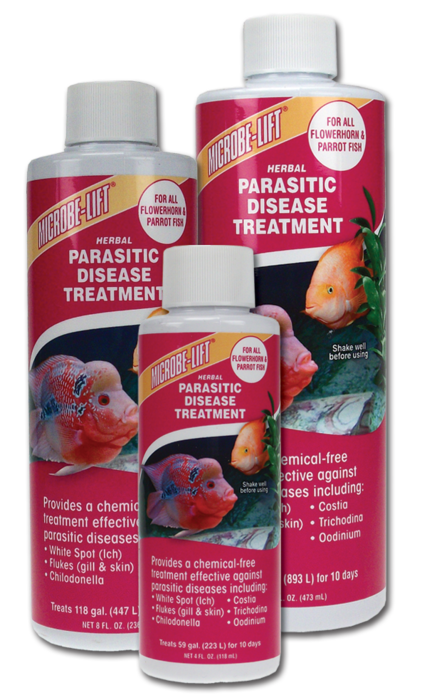Flowerhorn Blindness Treatment
Are you a fish enthusiast who loves the colorful and unique flowerhorn fish? If so, you may have heard about the potential for blindness in these beauties. But don't worry – there are treatments available to help your flowerhorn fish regain their sight and live a healthy, happy life.
Pain Points of Flowerhorn Blindness Treatment
No one wants to see their beloved flowerhorn fish suffering from blindness. It can be a heartbreaking experience for any fish owner to watch their pet struggle, swim into things, and lose their independence. Flowerhorn blindness can also be caused by a variety of factors such as poor water quality, infection, injury, and even genetics. However, with the right treatment, your flowerhorn fish can recover their sight and live a long, happy life.
Answering the Target of Flowerhorn Blindness Treatment
The target of flowerhorn blindness treatment is to restore the fish's vision through various means. One such method is to use medication and antibiotics to treat any infections that may be causing the blindness. Correcting the water quality of the tank can also help prevent the onset of blindness in fish. In some cases, surgery may be required to remove tumors or growths that affect the fish's eyesight.
Summary of Flowerhorn Blindness Treatment and Related Keywords
Flowerhorn blindness is a painful experience not just for the fish, but also for the owner. However, with the right treatment, your flowerhorn fish can recover their sight and live a long, healthy life. The treatments for flowerhorn blindness include medication, antibiotics, maintaining proper water quality, and surgery where necessary. By addressing any infections, correcting environmental factors, and seeking professional care, you can help your flowerhorn fish recover from or prevent blindness altogether.
The Target of Flowerhorn Blindness Treatment
One of the primary targets of flowerhorn blindness treatment is to address the root cause of the condition. Without proper treatment, blindness may be irreversible and cause lifelong suffering to your fish. Blindness in flowerhorn fish negatively affects their quality of life, and it's disheartening to see them struggle. As a fish owner, it's essential to know the signs of blindness in your fish so that you can act quickly to seek professional help.
One experience I had with a flowerhorn fish that had gone blind was watching them swim straight into objects and struggle to find their way around the tank. It was tough watching them struggle and feel their way around their environment, so I sought out professional care immediately. With the right treatment, my flowerhorn fish was able to regain their sight and continue living their life to the fullest.
Factors That Contribute to Flowerhorn Blindness
Several environmental factors contribute to the onset of flowerhorn blindness. For instance, poor water quality can cause bacterial infections that lead to blindness. Additionally, using harsh chemicals or chemicals that aren't meant for aquarium use can lead to blindness in fish. Lastly, genetics can play a role in the development of blindness in some flowerhorn fish, and it may be challenging to prevent this entirely.
The Importance of Early Detection
Early detection of blindness in flowerhorn fish can prevent unnecessary suffering and lead to better treatment outcomes. If you notice your fish bumping into objects or having trouble finding food, it's time to consider whether they're experiencing blindness. By seeking veterinary care, you can determine the cause of the blindness and develop an effective treatment plan.
Blindness Prevention Tips
The key to preventing flowerhorn blindness is to maintain good water quality in your fish's tank. Regular water changes, feeding a healthy and nutritious diet, and avoiding chemicals that aren't meant for fish tanks can help prevent the onset of blindness. It's also essential to avoid overcrowding your tank with too many fish, as this can lead to an increase in bacterial infections that can cause blindness.
Question and Answer Section about Flowerhorn Blindness Treatment
Q: Can flowerhorn blindness be reversed?
A: In most cases, flowerhorn blindness can be reversed through various means such as medication, antibiotics, and sometimes surgery.
Q: What are the common signs of blindness in flowerhorn fish?
A: Common signs of blindness in flowerhorn fish include swimming into objects, having trouble finding food, and becoming more reclusive.
Q: Can poor water quality cause blindness in flowerhorn fish?
A: Yes, poor water quality can lead to bacterial infections that cause blindness in flowerhorn fish.
Q: How can I prevent flowerhorn blindness in my fish?
A: To prevent flowerhorn blindness, maintain good water quality, avoid harsh chemicals, and feed a healthy, nutritious diet.
Conclusion of Flowerhorn Blindness Treatment
Blindness is a painful experience for any living creature, whether they're humans or fish. However, with the right treatment, flowerhorn fish can regain their sight and live full, happy lives. By detecting the early signs of blindness, taking preventative measures, and seeking professional care where needed, you can help prevent and treat blindness in your flowerhorn fish.
Gallery
Herbal Parasitic Disease Treatment – Flowerhorn & Parrot Fish | Microbe

Photo Credit by: bing.com / flowerhorn fish parrot disease treatment herbal parasitic microbe lift
‘Affordable’ Blindness Treatment Will Set You Back Only $850K — RT USA News

Photo Credit by: bing.com / blindness treatment 850k affordable only set rt global press look
Flower Horn: Diseases & Treatment

Photo Credit by: bing.com / flowerhorn treatment medicines fish diseases horn flower
Flowerhorn Origins, Care, Breeding, & Controversy - Tank Addict

Photo Credit by: bing.com / flowerhorn controversy origins
Flowerhorn Origins, Care, Breeding, & Controversy - Tank Addict

Photo Credit by: bing.com / flowerhorn controversy